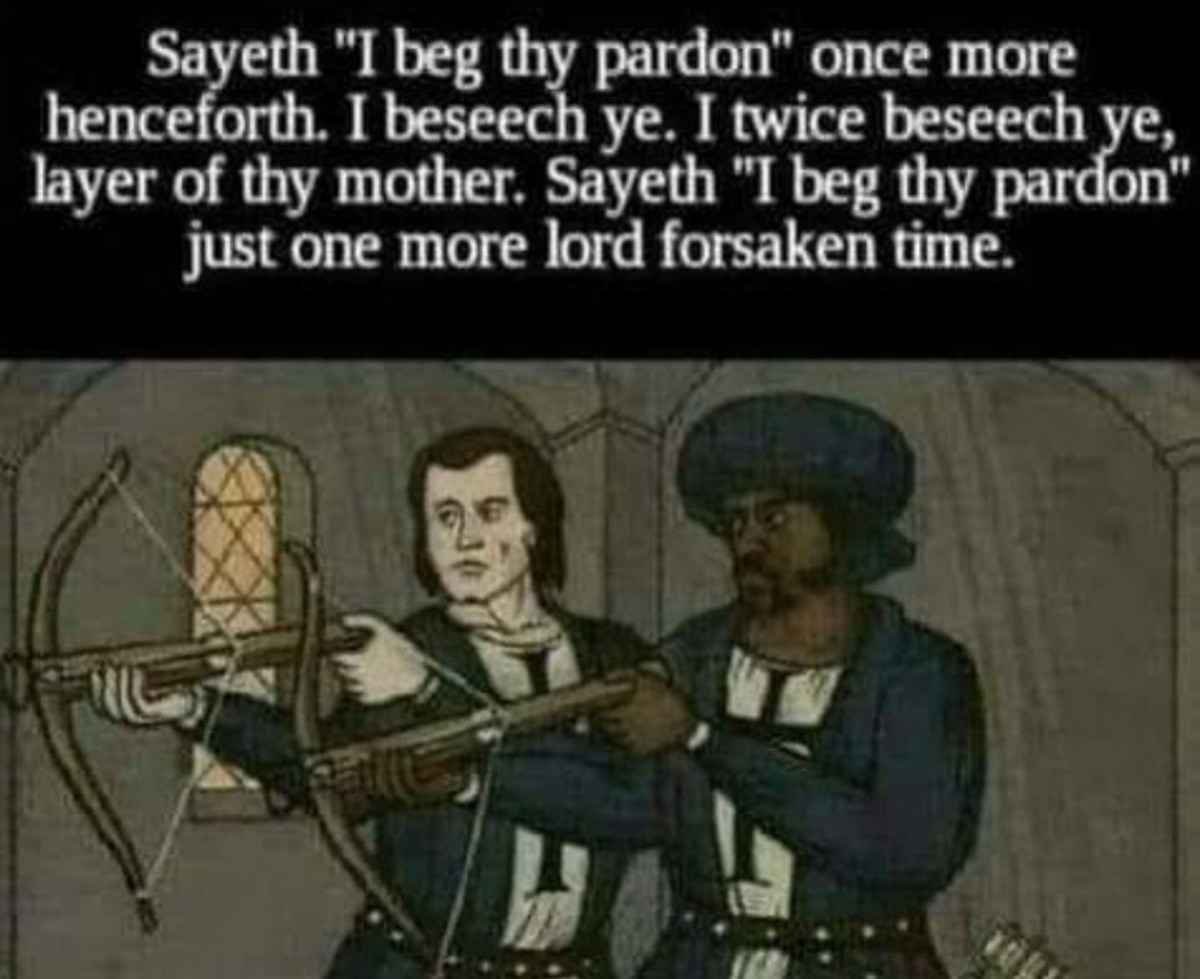this post was submitted on 13 Aug 2024
609 points (98.4% liked)
memes
10890 readers
4259 users here now
Community rules
1. Be civil
No trolling, bigotry or other insulting / annoying behaviour
2. No politics
This is non-politics community. For political memes please go to !politicalmemes@lemmy.world
3. No recent reposts
Check for reposts when posting a meme, you can only repost after 1 month
4. No bots
No bots without the express approval of the mods or the admins
5. No Spam/Ads
No advertisements or spam. This is an instance rule and the only way to live.
Sister communities
- !tenforward@lemmy.world : Star Trek memes, chat and shitposts
- !lemmyshitpost@lemmy.world : Lemmy Shitposts, anything and everything goes.
- !linuxmemes@lemmy.world : Linux themed memes
- !comicstrips@lemmy.world : for those who love comic stories.
founded 2 years ago
MODERATORS
you are viewing a single comment's thread
view the rest of the comments
view the rest of the comments

Ye Olde English, you crooked nosed knave, dost thou speak it?
Fun fact:
Ye is not pronounced with entirely vowel sounds, as is often heard. Y was a thorn in middle and Early Modern English, which represented the “th” sound so it was still pronounced the.
(This was just a linguistics fun fact, in old English the thorn would have been written Þ or þ which ruins your joke, but wasn’t my intent :( )
https://en.m.wikipedia.org/wiki/Thorn_(letter)
Relevant bit: with the arrival of movable typeprinting, the substitution of ⟨y⟩ for ⟨Þ⟩ became ubiquitous, leading to the common "ye", as in 'Ye Olde Curiositie Shoppe'. One major reason for this was that ⟨Y⟩ existed in the printer's types that were imported from Belgium and the Netherlands, while ⟨Þ⟩ did not.[5] The word was never pronounced as /j/, as in ⟨yes⟩, though, even when so written.[6]